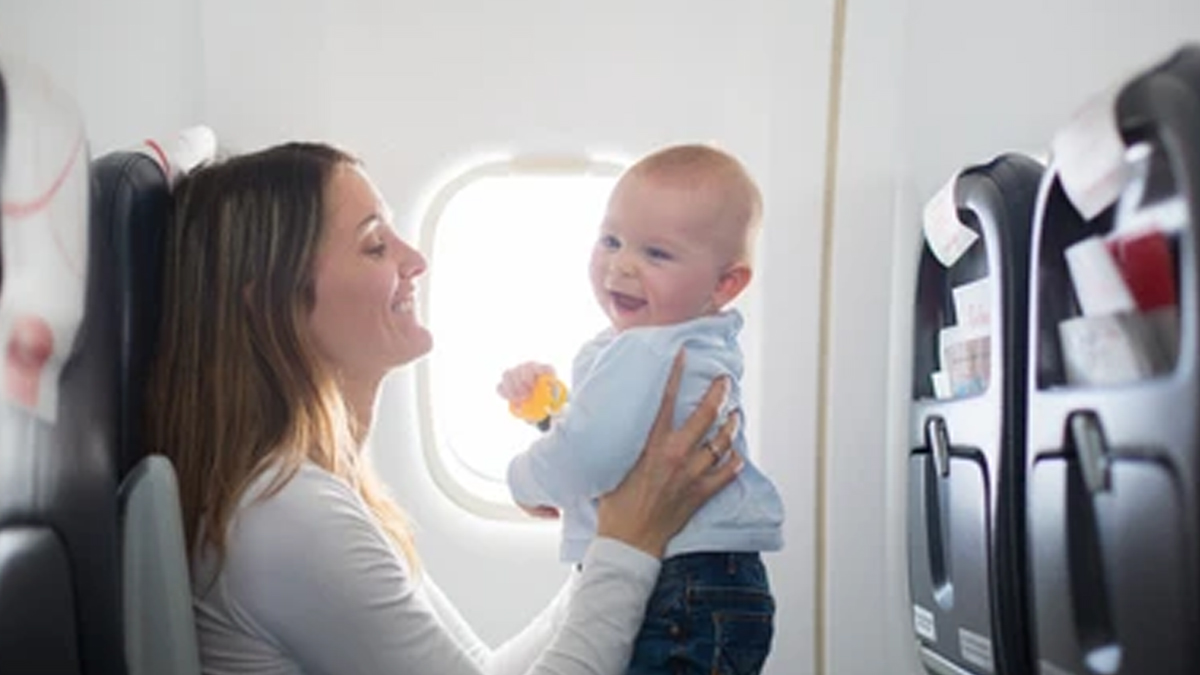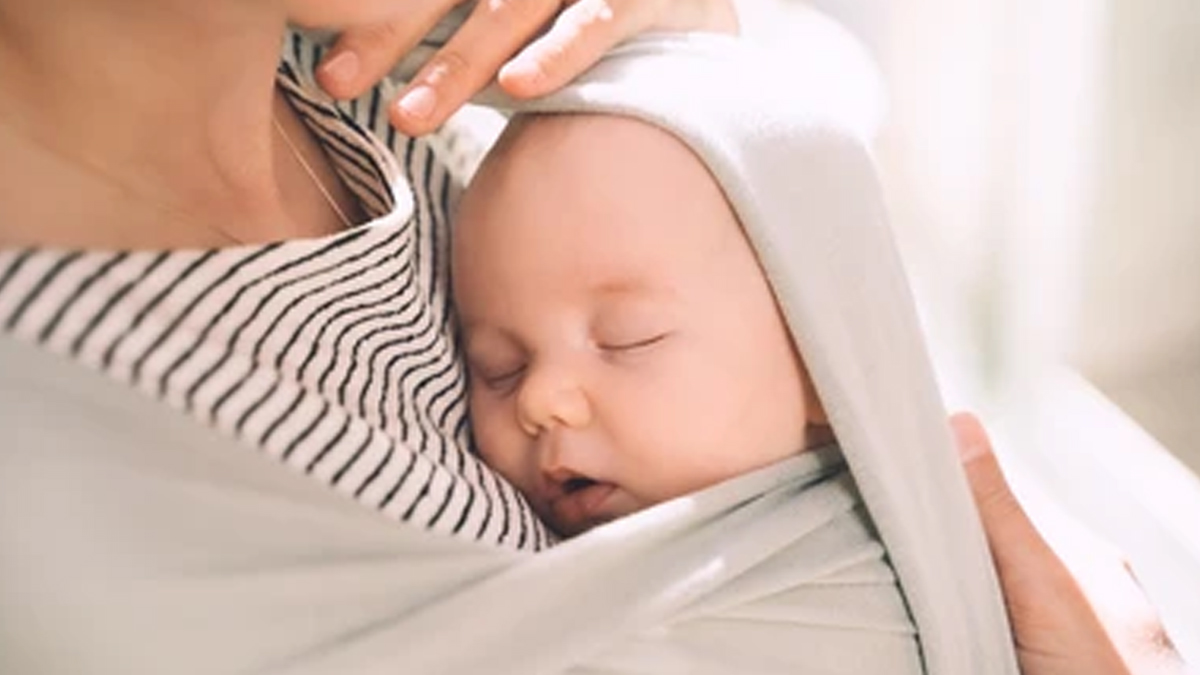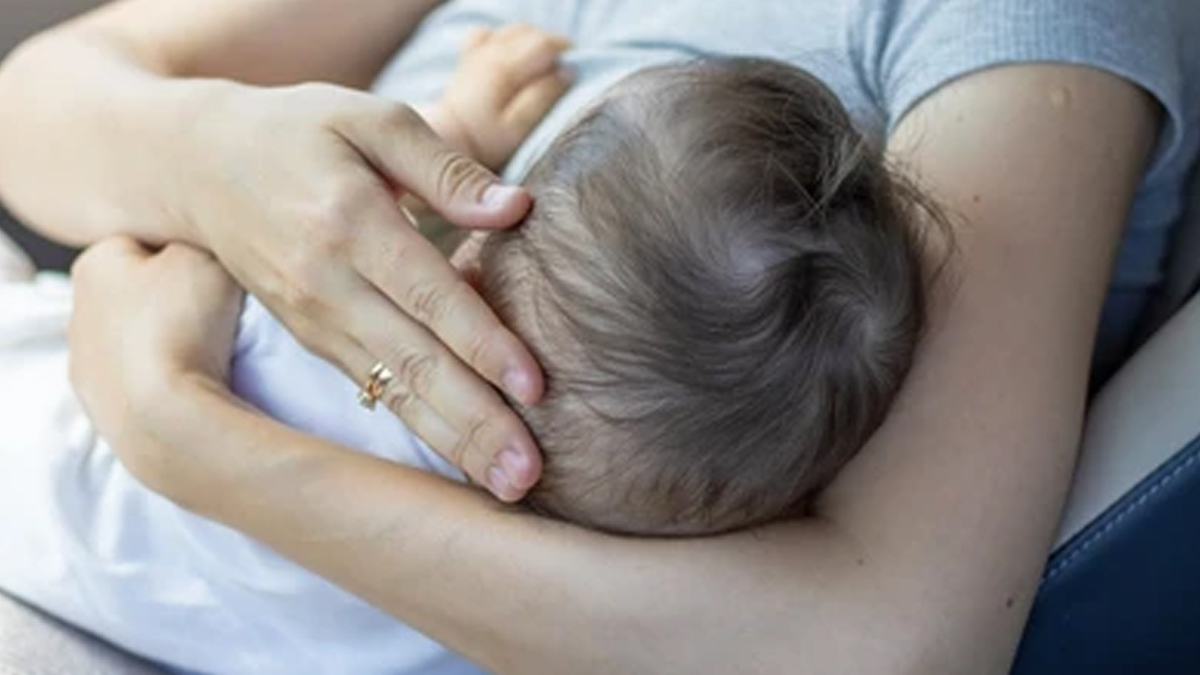
Breastfeeding is the only source of nutrition for children below the age of six months. While mothers can breastfeed their babies for up to two years or beyond, exclusive breastfeeding, meaning nothing other than breast milk, is recommended for the first six months of life, according to the World Health Organization (WHO).
Table of Content:-
So, what can new mothers do if they are travelling? While formula milk isn't an option in the initial phases, breastfeeding on the go becomes essential. From safely storing breastmilk to ensuring proper hygiene while feeding in unfamiliar environments, there are several concerns to consider. Here’s what an expert suggests to help mothers cope with these challenges while travelling.
Also Read: What Is Hyperlactation Syndrome? Expert Shares Potential Causes Of Excessive Breast Milk Production
Breastfeeding Tips For When You Are On The Go

You may think that the worst is over after childbirth, but that isn't the whole truth. Post-delivery, infants are completely dependent on their mother’s breast milk for nutrition. Therefore, even the idea of leaving behind a child due to an emergency travel can be challenging for mothers. So, what do new moms do?
Dr Pallavi Panse, Consultant - Gynaecology, Jupiter Hospital, Baner, Pune, starts off with some basic breastfeeding knowledge and tips for mothers on the go with their babies:
Breastfeed your kid as often as they desire.
- During long-distance flights, stay hydrated with non-alcoholic beverages.
- Avoid caffeinated beverages.
- Don't smoke.
- Avoid smoking areas.
- Get adequate rest.
- Plan regular rest and feeding intervals.
- If you experience traveller's diarrhoea, increase your water intake.
How To Store And Transport Breast Milk Safely While Travelling

For mothers who need to travel alone, Dr Panse advises storing expressed breast milk in an insulated cooler bag with frozen ice packs. Once expressed, the breast milk should be cooled and kept at a consistently cold temperature until it is used.
“If reliable breast milk storage is not available at the destination, consider shipping the milk using a temperature-controlled service,” she added.
However, if safe storage or shipping is not possible, it is best to discard the expressed milk. Mothers should continue expressing milk regularly to maintain their supply until they are reunited with their baby.
Hygiene Tips Lactating Mothers Should Follow While Breastfeeding
Following childbirth, it is critical to maintain good personal hygiene, whether or not you are breastfeeding. Washing your hands often helps to prevent germs from spreading between you and your baby.
The good thing about breastfeeding is that it requires less work than bottle feeding in terms of cleanliness, says Dr Panse, as there aren’t any additional tasks involved like washing or sterilising bottles.
Also Read: What Happens To Your Body After Breastfeeding? Expert Lists The Changes In Your Body
Additionally, breast milk also contains infection-fighting qualities, which help infants avoid disease.
However, excellent hygiene is still vital, and therefore, washing your hands before nursing your infant, especially after a diaper change, is crucial. While you don't have to wash your breasts, you may clean your nipples with water while taking a shower.
Tips to clean breast pumps and feeding bottles

If you are someone who uses breast pumps or bottles, ensure everything is clean and sterilised. “Use sterilising wipes or a portable steriliser. Store milk in an insulated bag with ice packs to keep it fresh. If using an electric pump, check for power sources. Carry extra bottles, nipples, and formula in case of delays. Plan ahead for privacy and comfort while pumping or feeding.
If you're flying, notify your airline in advance that you'll be travelling with a breast pump and/or expressed milk, and inquire about any limitations for bringing these in your cabin bag or checked luggage; the requirements for frozen milk may differ from those for liquid,” Dr Panse concluded.
Also watch this video
How we keep this article up to date:
We work with experts and keep a close eye on the latest in health and wellness. Whenever there is a new research or helpful information, we update our articles with accurate and useful advice.
Current Version
